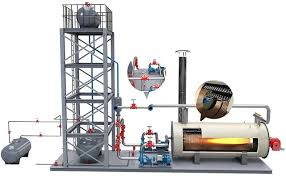
Sep . 04, 2024 07:03 Back to list
hot water boiler replacement cost
Understanding the Cost of Hot Water Boiler Replacement
Replacing a hot water boiler is a significant investment for homeowners, especially in regions with harsh winters where heating systems are essential. The cost of replacing a hot water boiler can vary widely based on several factors, including the type of boiler, its capacity, the complexity of the installation, and regional labor costs.
On average, homeowners can expect to pay between $3,000 and $7,000 for a boiler replacement. This price typically includes the cost of the boiler itself, which can range from $2,000 to $5,000, and additional expenses like labor, permits, and potential upgrades to the home’s existing plumbing or electrical systems. Higher-end boilers, such as condensing units or those with advanced technology, can drive up costs, sometimes exceeding $10,000.
Types of Boilers
There are several types of hot water boilers available on the market, including traditional cast iron, stainless steel, and condensing boilers. Cast iron boilers are known for their durability and longevity but can be less energy-efficient. Stainless steel models are often more efficient and lightweight but come at a higher initial cost. Condensing boilers are the most energy-efficient option, recovering lost heat from exhaust gases, but their complexity may result in higher installation costs.
Factors Influencing Costs
hot water boiler replacement cost

1. Boiler Type and Size The type of boiler selected can significantly affect the overall cost. Additionally, the size must be appropriate for the home’s heating needs. An oversized boiler can lead to inefficiencies and unnecessary costs, whereas an undersized one may not adequately heat the space.
2. Installation Complexity Installation may require modifications to existing piping or electrical systems, especially if upgrading from one boiler type to another. If the installation space is limited or the existing infrastructure needs significant changes, labor costs can increase.
3. Labor Costs Labor costs vary by region. In urban areas where skilled labor is in high demand, the installation may cost more than in rural areas.
4. Permits and Inspections Many areas require permits and inspections for boiler installation, contributing to the overall cost. It’s essential to check local regulations before proceeding with replacement.
Conclusion
When considering a hot water boiler replacement, it’s vital to obtain multiple quotes and assess various options. While the initial cost is a crucial factor, evaluating energy efficiency and long-term savings can make a significant difference in overall expenses. Investing in a quality boiler will not only enhance comfort but also potentially reduce heating bills in the long run.
-
High-Efficiency Commercial Oil Fired Steam Boiler for Industry
NewsJul.30,2025
-
High-Efficiency Biomass Fired Thermal Oil Boiler Solutions
NewsJul.30,2025
-
High Efficiency Gas Fired Thermal Oil Boiler for Industrial Heating
NewsJul.29,2025
-
High-Efficiency Gas Fired Hot Water Boiler for Sale – Reliable & Affordable
NewsJul.29,2025
-
High Efficiency Biomass Fired Hot Water Boiler for Industrial and Commercial Use
NewsJul.29,2025
-
High-Efficiency Biomass Fired Hot Water Boiler for Industrial Use
NewsJul.28,2025
Related PRODUCTS






















